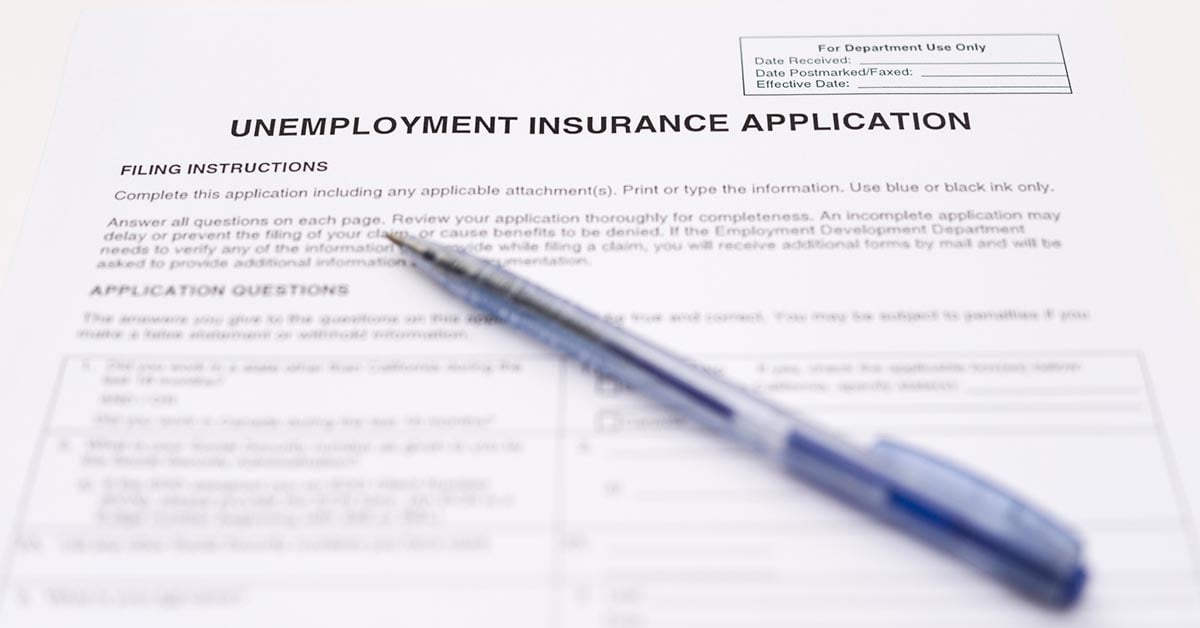Bookkeeping Red Flags and What To Do About Them
Bookkeeping is strategically important for every business because financials form the foundation for daily operations and future planning....

UPDATED: May 8, 2020 at 4:19 p.m.
A lot has changed over the last six weeks—while business owners have been focused on navigating their business operations under new circumstances, many workers have found themselves navigating the application for state unemployment benefits. Due to the high volume of applications from unemployed workers moving through the system, many applicants found themselves without assistance to correctly apply with the state. In addition to this, employers were unable to call the agency due to the state pulling all staff onto the employee phone lines.
Below are the highlights since our last unemployment post from March 24th, 2020:
Some states are warning unemployment benefit recipients that if their place of employment is now open and they decline an offer of work from their former employer, an employee who does not return to work will be deemed to have refused work and not be eligible for unemployment benefits.
Minnesota has released a frequently asked question in the following link (https://www.uimn.org/applicants/needtoknow/news-updates/covid19-workers.jsp) regarding applicant eligibility and returning to work under Executive Order 20-40, however, the site does not provide directions for employers facing refusal of work.
Other states have addressed this from the employer side. Iowa, as well as South Carolina and Oklahoma, have established criteria for employers to follow when work is refused by their eligible workforce. This may present the start of a pattern as to what other states may begin to enforce as businesses are allowed to open back up for business.
For example, Iowa Workforce Development has announced that businesses should report employees who refuse to return to work without good reason. Employers can help the state unemployment system by reporting offers of employment that were refused.
ORIGINAL POST – March 24, 2020 – 10:41 a.m.
On March 16, 2020, Governor Tim Walz signed Emergency Executive Order 20-05 to provide immediate relief to employers and unemployed workers during the COVID-19 pandemic. This order came immediately following Executive Order 20-04 to temporarily close all restaurants, bars, and other non-essential public businesses.
Executive Order 20-05 ensures workers who have been displaced during the COVID-19 pandemic have full access to unemployment benefits, and also ensures that taxpaying businesses are relieved of having to pay into the system to cover these additional costs. The order remains in place until rescinded by proper authority.
Employee applicants are eligible for unemployment insurance if:
This Executive Order waives normal rules due to the crisis. For the time being, applicants no longer need to go at least one week without pay to qualify for unemployment insurance. The dual expectations of looking for work in order to collect a check and being available if the state calls with an opening are not currently in effect.
The relief also provides a system to help workers who are not laid off but who have their hours cut back substantially. Employers are able to apply to the state’s shared work program to get partial unemployment to help employers avoid a layoff. https://mn.gov/deed/job-seekers/recently-unemployed/layoff/shared-work.jsp
If you meet the above requirements, the unemployment agency strongly encourages applying online as their phone lines may have longer wait times. The unemployment call centers are reserved for Minnesotans who are digitally disconnected or who need language support.
Employees who live in one state but work in another state may be required to apply for unemployment benefits in their work state or place of employment. Applicants are encouraged to visit the unemployment applicant pages for both states to determine which agency to apply with to avoid any unnecessary delay in benefit payments.
Governor Walz also orders that the Minnesota Unemployment Insurance Program not increase the unemployment insurance taxes for benefits paid as a result of the COVID-19 pandemic.
Taxpaying employers generally see an unemployment tax rate increase when unemployment benefit charges are taken against their account. In light of the pandemic, the order protects employers from a tax rate increase if their workers collect unemployment benefits because of COVID-19. Employers can find more information and frequently asked questions by visiting: https://www.uimn.org/employers/employer-account/news-updates/covid-19.jsp
Employers are reminded to provide clear messaging to their workforce during this time to ensure both employees and the business receive the benefits this order puts in place.
See our blog post on related Federal Rules in effect under the Families First Coronavirus Act— Federal mandates for Paid sick leave and Emergency family and medical leave may take precedence before state unemployment based on employer size.
For more information please refer to the Minnesota Employment and Economic Development at https://mn.gov/deed/.
If you have questions about the Familes First Act, you can email familiesfirstact@redpathcpas.com.

Bookkeeping is strategically important for every business because financials form the foundation for daily operations and future planning....

In a decision issued March 1, 2024, U.S. District Court Judge Liles Burke ruled that the Corporate Transparency Act (CTA) is unconstitutional....

Several types of trusts can help you manage your assets in a way that supports your estate planning goals while providing potentially significant tax...